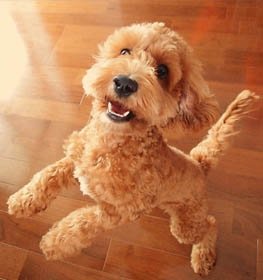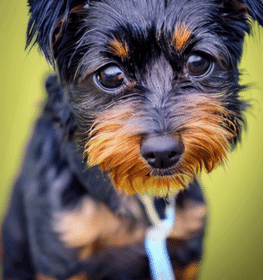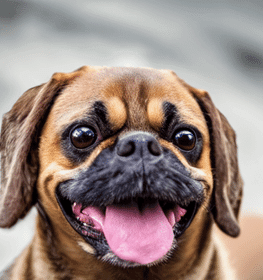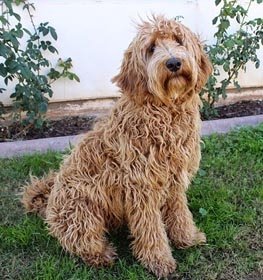Labloodhound Information & Dog Breed Facts
Collection of all the general dog breed info about Labloodhound so you can get to know the breed more.
| Group | Designer Dogs |
|---|---|
| Popularity Rank | 1609 |
| Reviews | 0 |
| User Ratings | |
|
Compare the Labloodhound With Other Dogs
Select at least one dog breed to make the comparsion. | |
 | |
| Origin | |
|
Breed Classification
What type of dog breed is a Labloodhound? Learn about its genetic classification and breeding category. | Cross Breed Bloodhound and Labrador Retriever mix |
|---|
|
Size Classification
What size category is a Labloodhound? Learn how big the Labloodhound breed typically grows. | Large |
|---|---|
|
Weight Statistics
How much does a Labloodhound weigh? Discover typical weight ranges for adult males and females of the Labloodhound breed. | 70-110 pounds (32-50 kg) |
|
Average Weight
What is the average weight of a Labloodhound? | 90 pounds (40 kg) |
|
Height
How tall is the Labloodhound? Labloodhound height: | Male: 25-27 inches (63-69 cm), Female: 23-25 inches (58-63 cm) |
|
Average Height
What is the average height of a Labloodhound? | Male: 26 inches (66 cm), Female: 24 inches (60.5 cm) |
|
Price Range
How much does a Labloodhound puppy cost? Find current market prices and factors affecting Labloodhound costs. | $800-$1200 If you choose to purchase the Labloodhound, you should know that the mentioned amount of money is an average of the collected data from breeders’ sites and puppy finder places. If you have a Labloodhound for sale, please advertise it on a reliable website to make sure the Labloodhound gets to a happy place. |
|---|---|
|
Availability
How easy is it to get a Labloodhound? How many Labloodhound are there in the world? | Very frequent: The Labloodhound is quite easy to get. There is a risk of overbreeding, as it is an extremely popular breed. Inbreeding is common because of its popularity. A new study suggests that inbreeding contributes to the incidence of disease and health problems. So be careful, buy from a trustworthy place or kennel and seek the help of an experienced person, a professional, to make the right decision. |
|
Intelligence Rating
How intelligent is a Labloodhound? Discover the Labloodhound's intelligence ranking and learning capabilities. | Outstanding: Labloodhound is one of the brightest dog breeds. They desire to learn tricks and commands often. The limit is your creativity. They understand and memorize new commands in fewer than 5 repetitions. This breed obeys the first command 95% of the time or better.
The Labloodhound is one of the best breeds in the dog intelligence ranking. |
|---|---|
|
Training Difficulty
How easy is it to train a Labloodhound? Learn about the Labloodhound's trainability and response to training methods. | Labloodhound dogs are very easy to train. They easily find out the association between commands and actions. |
|
Watchdog Rating
How good is a Labloodhound as a watchdog? Learn about the Labloodhound's alertness and guarding instincts. | Labloodhound dogs are not the best watchdogs. They aren't very territorial and protective about their property, so they probably won't alert you if they sense something different. |
|
Territorial Protection
Is a Labloodhound protective of its territory? Learn about the Labloodhound's guarding instincts and behavior. | Labloodhound dogs are not the best to protect their territory. Better to have the protection of your house and property supervised by others. |
|
Personality Traits
What personality does a Labloodhound have? Learn about characteristic Labloodhound temperament and behavior traits. | PlayfulLovingStubbornIndependentEnergeticAlertIntelligentFriendlyResponsiveAffectionateLoyalGentleGoingSocialOutrightTemperedCheerful |
|---|---|
|
Sensitivity Level
How sensitive are they? Labloodhound sensitivity: | Sensitive: Labloodhound dogs don't like an irregular daily routine, noisy household, and frequent guest visits.
This breed's emotional level reflects their owner's feelings and they don't handle punishments well. |
|
Affection Level
How affectionate are they? Is a Labloodhound a good family dog? | Average to High: Labloodhound dogs are highly affectionate dogs. They like being involved in the family's life. This breed isn't considered an aloof dog. |
|
Social Needs
How much social interaction does the Labloodhound need? Labloodhound social needs: | Labloodhound dogs need a lot of social interaction. They desire to always be with someone or around people. This breed hates being left alone. |
|
Impulse to Wander or Roam
How likely is the Labloodhound to run away? Does this breed explore or wander a lot? Does Labloodhound roam? | The wanderlust potential of the Labloodhound is strong enough to escape from home. They have a strong desire for exploring the world. Safer to walk them on a leash unless you teach them how to get back to you on command. |
|
Prey Drive
Do this canine have a strong prey drive? Does Labloodhound have high prey drive? | Labloodhound dogs have an average prey drive, which means that they don't have a high impulse to chase and catch something like a cat or any other small aminals, but it might happen. Training can help to achieve good behavior. |
|
Barking Frequency
Does a Labloodhound bark a lot? Learn about typical Labloodhound vocalization patterns and triggers. | Average to High: The Labloodhound is a vocal breed. Not the best choice if you prefer a quiet breed. They often bark loudly and howl sometimes. They can change their barks depending on their emotional level and what they're trying to say. Different barks could mean the same and the same barks could have different meanings.
Top reasons for barking: protection, alarm, fear, boredom, attention-seeking, greeting, separation anxiety, compulsive barking. |
|---|---|
|
Playful Nature
How playful is a Labloodhound? Understand the typical play drive and energy level of the Labloodhound breed. | The Labloodhound is a highly playful breed. Excited barking and sometimes nipping will alert you to play. |
|
Apartment Adaptability
Can a Labloodhound live in an apartment? Learn about the Labloodhound's suitability for apartment living. | It is not recommended to keep the Labloodhound breed in the home. It does best in the garden, but if you do want to keep it indoors, it should be exercised thoroughly with long daily walks, so you can keep the Labloodhound indoors by introducing daily routines. |
|
Lifestyle Adaptability
How adaptable is a Labloodhound to lifestyle changes? Learn about the Labloodhound's flexibility to new situations. | Labloodhound dogs adapt well to lifestyle changes and different living environments. They don't mind moving from one place to another with their owner. |
|---|---|
|
Alone Time Tolerance
Can a Labloodhound be left alone? Learn about the Labloodhound's tolerance to solitude. | Labloodhound dogs tend to have separation anxiety when their owners left them alone at home because they bond very closely with them. |
|
Bite Risk Assessment
What is a Labloodhound biting potential? Learn about the Labloodhound's bite risk factors. | Low 🔽 The Labloodhound has a low chance of biting somebody. Top reasons for dog bite: protection, pain, excitement, herding instinct, being provoked. (Data based on the available online bite statistics.) |
|---|---|
|
Mouthing Tendency
Is a Labloodhound mouthy? Learn about the Labloodhound's tendency to use mouth during play. | Labloodhound dogs have a strong tendency to nip, chew, play-bite, or herd people. It's a common habit during puppyhood, not aggressive behavior. These "bites" don't hurt, but Labloodhound dogs need to be taught a good attitude.
We have compiled a list of Mouthy Dog Breeds. |
|
Bite Strength Rating
How strong is a Labloodhound bite? Learn about the Labloodhound's bite force measured in PSI. | Between 200 and 400 PSI ⏺ Labloodhound bite force: Ordinary. Bite force Labloodhound measurements typically fall within the range of 200 to 400 PSI. The bite force of a Labloodhound is considered ordinary when compared to other dog breeds, but it is still quite powerful. This Labloodhound bite force PSI can cause bite wounds. Labloodhound bite PSI is not something that should be feared if the dog is well-trained and managed. To avoid any issues, it's essential to learn how to train a Labloodhound puppy not to bite from an early age.
The Labloodhound, and many others, have a fearsome presence because they have significant jaw strength, so it is important not to anger the dog and have it around strangers until it is fully trained. However, they are usually quite calm and good companions, they work well in families and are easy to care for. In conclusion, while the Labloodhound bite force is certainly an interesting aspect of the breed, it is important not to let it overshadow the many other reasons why these dogs are so loved and respected. With proper training and socialization, a Labloodhound can be a loyal and protective companion for your family. |
|
Average Lifespan
How long does a Labloodhound live? Learn about the typical lifespan of the Labloodhound breed. | 10-12 years The average lifespan of Labloodhound: 11 years |
|---|---|
|
Climate Tolerance
How well does a Labloodhound handle different weather? Learn about the Labloodhound's climate adaptability. | Tolerates warm and cold weather Dogs that tolerate hot and cold weather are typically those that have a double coat of fur. Dogs with a double coat of fur have a layer of fur that insulates their skin and helps protect them from the cold and the heat. |
|
Health Concerns
What health issues are common in a Labloodhound? Discover typical conditions affecting the Labloodhound breed. | Labloodhounds are commonly healthy dogs. Vet costs aren't expensive with this breed. |
|
Vet Care Frequency
How often does a Labloodhound need vet visits? Learn about the Labloodhound's veterinary care requirements. | Rare The Labloodhound should have a complete physical check-up at least every 12-18 months (but preferably once per year). If your dog shows any symptoms, call your veterinarian. |
|
Health Problems
What genetic/health problems does the Labloodhound breed have? What are the health issues and concerns of the Labloodhound breed? Most common health risks of Labloodhound: | Cataracts Hip Dysplasia HypothyroidismProgressive retinal atrophy (PRA)BloatEpilepsyEntropionEar InfectionsEctropionElbow DysplasiaOsteochondrosis DissecansEctopic CiliaTricuspid Valve DysplasiaAcute Moist DermatitisCold TailMyopathy |
|
Energy Rating
How energetic is a Labloodhound? Understand daily activity needs of the Labloodhound breed. | Labloodhound dogs are high-energy dogs. An active lifestyle makes them happy. |
|---|---|
|
Activity Requirement / Exercise Need
How much exercise does a Labloodhound need? How much exercise do Labloodhound dogs require per day?
Do Labloodhound dogs need a lot of exercises? | Labloodhound dogs need a lot of exercises. Long walks should be on a daily schedule. If you live an active life, this breed can be a good choice for you. |
|
Sleeping Need
How much sleep does the Labloodhound breed need? | Labloodhound dogs don't need too much sleep. They are energetic and desire to live active life. If you think naps are overrated, this breed can be the best choice for you. |
|
Obesity Tendency
Is a Labloodhound prone to weight gain? Learn about the Labloodhound's obesity risks. | Average to High: If you don't pay attention to the Labloodhound's weight, he can easily gain weight. More than one daily walk should be on schedule. To make your dog happy and fit, feed him with quality dry dog food and live an active life together. Try to find the happy medium between exercise and feeding.
If you notice any weight gain, consult your veterinarian and make a diet plan. Reduce unhealthy food and snacks, and measure the Labloodhound weight regularly. |
|---|---|
|
Food Consumption
How much food does a Labloodhound need daily? Learn about the Labloodhound's feeding requirements. | Recommended daily amount: 4 to 8 cups of high-quality dry food a day, divided into two meals. |
|
Allergy Friendliness
Is a Labloodhound hypoallergenic? Learn about the Labloodhound's suitability for allergy sufferers. | No Labloodhound dogs don't do well with allergy sufferers by causing allergic reactions. Some dog breeds are even considered to higher possibility of an allergic response. Coat type isn't necessarily relevant, because most people are allergic to dander (flakes on the dog's skin) or saliva, not actually to dog hair. |
|---|---|
|
Coat Colors
What colors does a Labloodhound come in? Discover all possible Labloodhound color variations. | BlackTan Red YellowLiver Chocolate |
|
Grooming Requirements
How much grooming does a Labloodhound need? Learn about Labloodhound coat maintenance requirements. | Easy to groom: The Labloodhound doesn't require a lot of grooming. Seasonal flea treatment is needed, but cutting the dog's hair by a professional groomer isn't necessary. Ears and eyes should be cleaned regularly to avoid infections. Labloodhound is a good choice if you don't have the time, skill, or money to take care of a high-maintenance dog. Recommended for beginners. |
|
Drooling Tendency
Does a Labloodhound drool a lot? Learn about the Labloodhound's drooling habits. | The Labloodhound drools quite a lot, so if you dislike being covered by slobber spots on your clothes, you may want to choose another dog breed. Drooling is the unintentional saliva flowing outside of the mouth. It can be completely normal or a sign of a health problem. Certain dog breeds drool more than others, just like the Labloodhound.
If you notice any change in your dog's drooling habit, you should contact a vet as soon as possible. |
|
Stinkiness Rating
Does a Labloodhound smell bad? Learn about the Labloodhound's natural odor levels. | High 🔼 The Labloodhound has a high chance of bad smell. Top reasons for dog stinkiness: infection of bad tooth/ear/skin folds, gas attacks. |
|
Coat Characteristics
What type of coat does a Labloodhound have? Learn about the Labloodhound's fur characteristics. | DenseRoughWaterproofHardShort |
|
Bathing Needs
How often does a Labloodhound need baths? Learn about the Labloodhound's bathing requirements. | 4-6 weeks Average. Experts recommended at least every 4-6 weeks for this family pup. According to a study, 56% of pet parents don’t bathe their dogs as frequently as they should, and 60% use the sniff test when deciding when it’s bath time.
Bathing your dog is beneficial to them in more ways than just one. It’s also a good time to look for unusual scratches, bumps, fleas, and other irregularities. When their hair is wet and flat against their body, these details are more visible. |
|
Shedding Level
How much do Labloodhound dogs shed? How to control, reduce and prevent the shedding of the Labloodhound? Do Labloodhound dogs shed a lot? | Labloodhound dogs shed moderately. It's a natural process of the hair growth cycle. Regular brushing reduces the amount of hair that sheds. It mostly depends on their health status and breed type. |
|
Child Compatibility
Is a Labloodhound good with children? Learn about the Labloodhound's behavior around kids of different ages. | Labloodhound dogs are very kid-friendly dogs. This breed enjoys being surrounded by children.
|
|---|---|
|
Pet Compatibility
How well does a Labloodhound get along with other pets? Discover the Labloodhound's compatibility with other animals. | Labloodhound dogs are one of the friendliest dog breeds. |
|
Stranger Friendly
Are they aggressive or friendly towards/with strangers? Labloodhound temperament with other people: | Labloodhound dogs are very stranger-friendly dogs. |
|
Cat Friendly
How well do Labloodhound dogs get along with cats? Are they good with kittens? What is this fido's temperament with cats? Can they be good with cats? Can the Labloodhound breed live with a cat? | Labloodhound dogs are very cat-friendly dogs. |
|
Dog Friendly
Is Labloodhound good with other dogs? Are they dog-friendly dogs? How well do Labloodhound dogs get along with other dogs? | Labloodhound dogs are very dog-friendly dogs. If you want more dogs in your family or you'd like to join dog meetups, the Labloodhound can be a great choice. |
|
Good For First Time Owners
Is Labloodhound breed good for first-time owners? Do they make a good dog for novice owners? Is Labloodhound breed suitable for first-time owners? | Yes Labloodhound dogs are good for novice owners, due to their easy-going personality. |
|
Office Friendly
Are Labloodhound dogs good office canines? Do Labloodhound dogs make good office-friendly pets? Can they be office dogs? | No Labloodhound is not the best dog breed for office environment. |
|
Senior Citizens Friendly
Are they senior citizens friendly dogs? How well do Labloodhound dogs get along with the elderly people? What is the Labloodhound temperament with senior people? Are Labloodhound dogs good for elderly owners? | Labloodhounds are one of the best breeds for elderly people. |
|
Service Dog Capability
Can a Labloodhound be a service dog? Learn about the Labloodhound's service work potential. | Yes This breed makes good as a service dog. A service dog is a term used in the USA to refer to any type of assistance dog specifically trained to help people who have disabilities, such as visual impairment, hearing impairments, mental disorders, seizures, mobility impairment, and diabetes. Service dogs are protected under the ADA (Americans with Disabilities Act).
Labloodhound breed is a good choice for service purposes. |
|---|---|
|
Therapy Work Suitability
Is a Labloodhound good as a therapy dog? Learn about the Labloodhound's therapy work aptitude. | Yes This breed makes a perfect therapy dog. A therapy dog is a dog that might be trained to provide affection, comfort, and love to people in hospitals, retirement homes, nursing homes, schools, hospices, disaster areas, and people with anxiety disorders or autism.
Labloodhound breed is a good choice for therapeutic purposes. |
|
Scent Detection Ability
Is a Labloodhound good at detection work? Learn about the Labloodhound's scenting abilities. | Yes After proper training, they can excel at this kind of work. A detection dog or sniffer dog is a dog that is trained to use its senses (mostly its smell) to detect substances such as explosives, illegal drugs, wildlife scat, currency, blood, and contraband electronics such as illicit mobile phones.
Labloodhound breed is a good choice for detection purposes. |
|
Search & Rescue Potential
Can a Labloodhound do search and rescue? Learn about the Labloodhound's SAR capabilities. | Yes This breed would make an excellent search and rescue dog. The use of dogs in search and rescue (SAR) is a valuable component in wilderness tracking, natural disasters, mass casualty events, and in locating missing people.
The Labloodhound breed is a good choice for SAR purposes. |
|
Maritime Work Ability
Is a Labloodhound good on boats? Learn about the Labloodhound's maritime capabilities. | Yes Labloodhound breed usually likes being on a boat. Boat dogs were typically bred for their strength, stamina, and water resistance, as they were often required to perform tasks such as pulling in fishing nets, and jumping into the water to retrieve ropes or lines, or helping to move cargo. Sailor dog is a type of dog that was bred to accompany sailors on their voyages. They were typically used for three purposes: as a working dog, as a watchdog, and as a companion. A boat dog is a term used to describe a type of dog that was traditionally bred and used as a working dog on boats. |
|
Draft Work Capability
Can a Labloodhound pull carts? Learn about the Labloodhound's drafting abilities. | Not really A drafting dog or draft dog is a dog bred and used for cart pulling. Dogs bred for this work have strong builds and qualities that are needed, strength and determination.
Labloodhound is not the best breed for drafting purposes. |
|
Military Service Background
Was a Labloodhound used in military service? Learn about the Labloodhound's military history. | Not really In history, this breed was not really used for combat dog. |
|
Puppy Litter Size
How many puppies does a Labloodhound usually have? Learn about typical litter sizes. | 5-10 puppies |
|---|---|
|
Pregnancy Duration
How long is a Labloodhound pregnant? Learn about the Labloodhound's gestation period. | 60-64 days Reproductive cycle of the female Labloodhound: The first period called Proestrus lasts for about 9 days.
During this time the females start to attract males. You can notice by swelling vulva and bloody discharge. The second part is the Estrus when the female is receptive for the male. It lasts for about 3 to 11 days. The sign of the proestrus part is the soft and enlarged vulva. The discharge decreases and lightens in color. The third part is the Diestrus. Normally, it occurs around day 14. In this period the female’s discharge changes for vivid red and coming to its end. The vulva returns to average, and she will no longer permit mating. The fourth part called the Anestrus. The time frame between heat periods normally lasts about six months. |
|
Breeding Frequency
How often can a Labloodhound have puppies? Learn about safe breeding intervals. | Once a year. More frequent breeding is not healthy. It is very important not to buy a dog from a puppy mill, where the needs of the pups and their mothers are ignored. It's an inhumane high-volume dog breeding facility, where puppies born several times a year. |
|
AKC Classification
What AKC group is a Labloodhound in? Learn about the Labloodhound's AKC classification. | Not recognized by the American Kennel Club. |
|---|---|
|
FCI Classification
What FCI group is a Labloodhound in? Learn about the Labloodhound's international classification. | Not recognized by FCI. |
Labloodhound Pros and Cons
- Intelligence Rating: Outstanding: Labloodhound is one of the brightest dog breeds.
- Training Difficulty: Labloodhound dogs are very easy to train.
- Health Concerns: Labloodhounds are commonly healthy dogs.
- Grooming Requirements: Easy to groom: The Labloodhound doesn't require a lot of grooming.
- Lifestyle Adaptability: Labloodhound dogs adapt well to lifestyle changes and different living environments.
- Child Compatibility: Labloodhound dogs are very kid-friendly dogs.
- Cat Friendly: Labloodhound dogs are very cat-friendly dogs.
- Dog Friendly: Labloodhound dogs are very dog-friendly dogs.
- Senior Citizens Friendly: Labloodhounds are one of the best breeds for elderly people.
- Good For First Time Owners: Labloodhound dogs are good for novice owners, due to their easy-going personality.
- Service Dog Capability: This breed makes good as a service dog.
- Therapy Work Suitability: This breed makes a perfect therapy dog.
- Scent Detection Ability: After proper training, they can excel at this kind of work.
- Search & Rescue Potential: This breed would make an excellent search and rescue dog.
- Maritime Work Ability: Labloodhound breed usually likes being on a boat.
Boat dogs were typically bred for their strength, stamina, and water resistance, as they were often required to perform tasks such as pulling in fishing nets, and jumping into the water to retrieve ropes or lines, or helping to move cargo.
Sailor dog is a type of dog that was bred to accompany sailors on their voyages.
- Allergy Friendliness: Labloodhound dogs don't do well with allergy sufferers by causing allergic reactions.
- Apartment Adaptability: It is not recommended to keep the Labloodhound breed in the home.
- Drooling Tendency: The Labloodhound drools quite a lot, so if you dislike being covered by slobber spots on your clothes, you may want to choose another dog breed.
- Stinkiness Rating: The Labloodhound has a high chance of bad smell.
- Obesity Tendency: Average to High: If you don't pay attention to the Labloodhound's weight, he can easily gain weight.
- Watchdog Rating: Labloodhound dogs are not the best watchdogs.
- Mouthing Tendency: Labloodhound dogs have a strong tendency to nip, chew, play-bite, or herd people.
- Impulse to Wander or Roam: The wanderlust potential of the Labloodhound is strong enough to escape from home.
- Alone Time Tolerance: Labloodhound dogs tend to have separation anxiety when their owners left them alone at home because they bond very closely with them.
- Office Friendly: Labloodhound is not the best dog breed for office environment.




